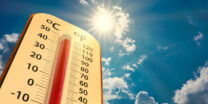DON’T celebrate yet. Despite the easing of many restrictions and the lifting of most mask mandates, COVID-19 is still a public health emergency of international concern, according to the World Health Organization.
The International Health Regulations Emergency Committee, the panel of experts who reviewed the global impact of COVID-19 pandemic, met last week. It concluded that COVID-19 “remains a dangerous infectious disease with the capacity to cause substantial damage to health and health systems,” more than three years since it was detected.
Countries must still take several steps to protect their population and prepare for any future health emergencies, said the WHO.
A public health emergency of international concern is defined as “an extraordinary event which is determined to constitute a public health risk to other States through the international spread of disease and to potentially require a coordinated international response.”
Long-term action
The WHO said long-term public health action is needed.
“While eliminating this virus from human and animal reservoirs is highly unlikely, mitigation of its devastating impact on morbidity and mortality is achievable and should continue to be a prioritized goal,” it said.
WHO recommendations
WHO Director-General Dr Tedros Adhanom Ghebreyesus said countries must continue to take several steps to make sure COVID-19 won’t continue to wreak havoc on their healthcare systems.
One is to continue COVID-19 vaccination, including booster doses, to achieve 100 percent coverage of high priority groups. COVID-19 vaccination should be integrated into regular immunization programs, he said.
In the Philippines, 73.83 million have completed their two-dose regimen, but only 21.34 million have received a booster shot.
Ghebreyesus also said countries must increase access to COVID-19 vaccines, diagnostics, and therapeutics. They should start preparing to authorize the use of these even outside of the global emergency.
He likewise called for better reporting of COVID-19 data to the WHO so that it could detect and monitor emerging variants and identify significant changes to COVID-19 epidemiology.
This would also help the WHO understand the COVID-19 situation in the different countries.
Better emergency preps
Countries must begin strengthening their responses to emergencies so that they could avoid the “panic-neglect cycle,” said the WHO chief. They should be ready for future outbreaks and pay attention to their health workforce and infection prevention and control, he said.
They should pay attention to financing for respiratory and non-respiratory pathogen preparedness and response as well, he added.
Countries should also continue to support research for improved vaccines that would reduce the transmission of the coronavirus and that would lead to an understanding of the full spectrum, incidence, and impact of post COVID-19 condition.
Address the infodemic
Countries must continue to address the spread of unreliable or false information about COVID-19 and to implement public health and social measures (PHSM), said Ghebreyesus.
“Risk communication and community engagement should be adapted to local contexts and tackle mis- and dis-information that erodes trust in medical countermeasures and PHSM,” he said.
International travel-related measures should also be adjusted based on risk assessment. But he said proof of COVID-19 vaccination should not be a pre-requisite for International travel.
Risks still present
The International Health Regulations Emergency Committee said the pandemic may be reaching an “inflexion point,” or the point where a significant change may occur. However, the virus would still remain and may still cause disease in the foreseeable future, it said.
The committee was also concerned that there is still a high number of deaths from COVID-19 compared to other respiratory infectious diseases.
Other countries, especially low and middle income ones, have also not vaccinated enough of their population, it noted. Many of those in the highest-risk groups don’t have enough vaccine protection as well.
Moreover, emerging variants of the virus also bring uncertainty, it added.
Challenges abound
It also noted that adherence to public health and social measures have gone down, and attributed this to pandemic fatigue and the public’s belief that the risks from the coronavirus have lessened.
The long-term effects of COVID-19 and the higher risk of cardiovascular and metabolic disease could also have a negative impact on the population, it said.








